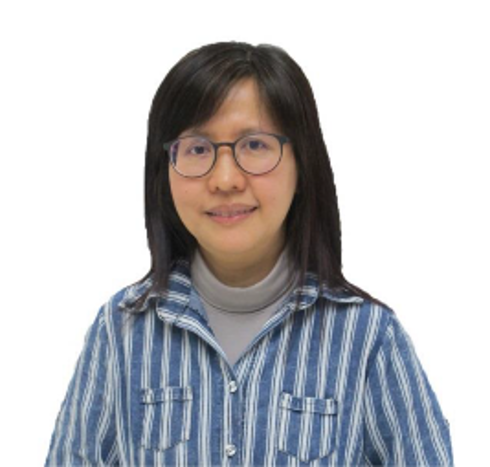QUICK LINKS
Keynote Speakers
 Prof. Alexander Korsunsky,
Prof. Alexander Korsunsky,
Vice President, Trinity College, Oxford University,
UK
Editor in Chief, Materials & Design
Alexander Korsunsky received his degree of Doctor of Philosophy (DPhil) from Merton College, Oxford, following undergraduate education in theoretical physics. His current appointment is Professor of Engineering Science at the University of Oxford and Trinity College. He has given keynote plenaries at major international conferences on engineering and materials. He has developed numerous international links, including visiting professorships at Universitá Roma Tre (Italy), ENSICAEN (France) and National University of Singapore.
Prof Korsunsky’s research interests concern developing improved understanding of integrity and reliability of engineered and natural structures and systems, from high-performance metallic alloys to polycrystalline ceramics to natural hard tissue such as human dentin and seashell nacre.
Prof Korsunsky co-authored books on fracture mechanics (Springer) and elasticity (CUP), and published over 200 papers in scholarly periodicals on the subjects ranging from neutron and synchrotron X-ray diffraction analysis and the prediction of fatigue strength to micro-cantilever bio-sensors, size effects and scaling transitions in systems and structures.
Support for Prof Korsunsky’s research has come from EPSRC and STFC, two major Research Councils in the UK, as well as also from the Royal Society, Royal Academy of Engineering (RAEng), NRF (South Africa), DFG (Germany), CNRS (France) and other international and national research foundations. Prof Korsunsky is a member of the editorial board of Journal of Strain Analysis published by the Institution of Mechanical Engineers, UK (IMechE).
Prof Korsunsky is consultant to Rolls-Royce plc, the global aeroengine manufacturer, whom he advises on company design procedures for reliability and consistency. He spent a period of industrial secondment at their headquarters in Derby, UK (supported by RAEng), and made recommendations on R&D in structural integrity.
Prof Korsunsky plays a leading role in the development of large scale research facilities in the UK and Europe. He is Chair of the Science Advisory Committee at Diamond Light Source (DLS) near Oxford, UK, and Chair of the User Working Group for JEEP (Joint Engineering, Environmental and Processing) beamline at DLS. These activities expand the range of applications of large scale science to problems in real engineering practice.
Prof Korsunsky’s research team at Oxford has involved members from almost every part of the globe (UK, FR, DE, IT, China, India, Korea, Malaysia, South Africa).

Prof. Kwang Leong Choy,
University College London, UK
Kwang Leong Choy [D.Phil (oxon)., DSc, FIMMM, FRSC] is the Professor of Materials Discovery and the Director of the UCL Institute for Materials Discovery at University College London (UCL) since 2014. She obtained her Doctor of Philosophy (D.Phil.) in Materials Science from the University of Oxford and Doctor of Science (D.Sc.) in Materials from the University of Nottingham. She has been employed at University of Oxford, Imperial College London and University of Nottingham before joining UCL. She has extensive experience in in materials creation, discovery and exploitation of eco-friendly, cost-effective and sustainable high performance thin films and nanomaterials processing technologies, especially for clean energy and engineering applications. She has authored over 230 peer-reviewed publications, including 5 books and 20 patents in nanomaterials, thin films and coatings for structural, functional and biomedical applications. She is the recipient of Grunfeld Medal Prize and has given over 150 keynote papers/invited lectures and conference session Chairman. She is leading a multidisciplinary research team ranging from material scientists, chemists, physics, coating specialists, bioengineering, nanobiotechnology, and engineers. Her team is conducting cutting edge research and technology exploitation of high performance, eco-friendly and cost-effective processing of new nanostructured materials, nanocomposites and superthin/thin/thick films coated products for thin film solar cells, clean energy, energy storage, electrical, optoelectronics, environment, health care, and biomedical applications. She has been elected to several prestigious fellowships such as Fellow of the Institute of Materials (2007-present), Royal Society of Chemistry (2010 - present), European Science Foundation NANO network (2008-2014), Chartered of Science, CSi (2007- present), as well as on editorials boards (Editorial Board of Nano-Micro Letters, Journal of Nanomaterials, and Guest Editor of “Surface Engineering” and “Chemical Vapour Deposition”). She has been the Founder, Inventor and Director of Innovative Materials Processing Technologies Ltd and Co-Founder of Southside Thermal Sensing (spin-out companies from Imperial College London). She was awarded a Visiting Professorship (2001/03) by the Swedish Engineering Research Council at the University of Uppsala, Visiting Professorship for Senior International Scientist at Ningbo Institute of Materials Technology and Engineering (NIMTE, 2010/2012), and Chinese Academy of Sciences (2011/2013). She has secured and managed numerous multimillion pounds national and European flagship research programmes with extensive collaboration with academia and industry. She has also established multi-million pound state-of-the art nanomaterials, innovative thin/thick films processing and characterisation facilities.
 Assoc.
Prof. Dr. Radchada Buntem
Assoc.
Prof. Dr. Radchada Buntem
Silpakorn University, Thailand
I am an inorganic chemist working in the Department of Chemistry, Faculty of Science, Silpakorn University, Thailand. I have been teaching chemistry and inorganic chemistry for students since I was graduated from Department of Chemistry, University of Cambridge. I also supervise the undergraduate and graduate students in performing research. My research interests range from glass and sol-gel glass, bioactive glass, organic-inorganic hybrid materials, and upcyclng of bio-waste. I am also responsible for the master degree program in Arts conservation. This leads me to the new and fruitful experience in performing the analyses of cultural materials.

